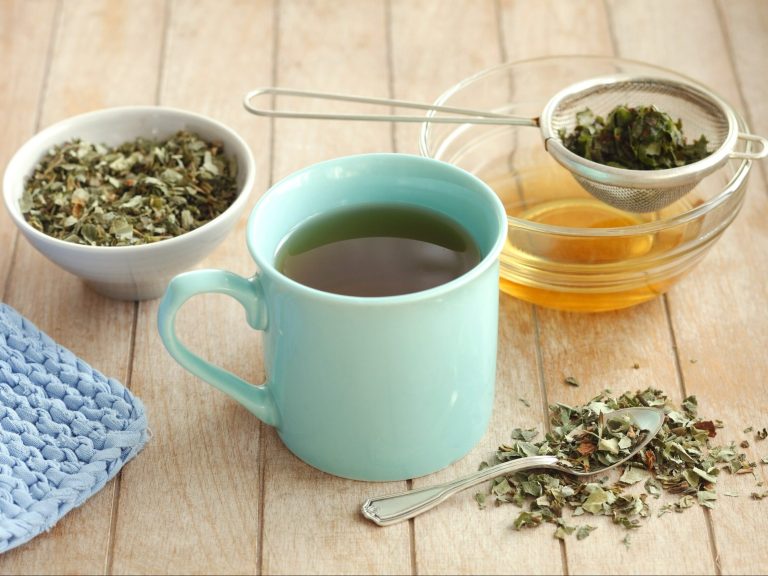Diet and lifestyle influence dental health. Which products are good and which are harmful to our teeth?

Brushing and flossing your teeth twice a day, as well as regular preventive visits to the dentist once every six months are not all you can do to keep your teeth healthy and stay white for many years. The products you use every day and the consistency of the food you choose are also of great importance. Some may promote tooth decay or discolor the enamel, while others may make the enamel stronger.
What should not be missing in our diet is explained by Agnieszka Laskus, M.D., specialist in periodontology and general dentistry and co-founder of the Dr. Laskus Foundation, which promotes healthy behaviors and education in the field of oral hygiene.
The mouth is the first element of the digestive system. This is where the basic food grinding process takes place, supported by enzymes produced by the salivary glands. The subsequent stages of digestion largely depend on how thoroughly we crush the food – the more precisely it is crushed, the better the digestion process in further parts of the digestive system, i.e. in the stomach and intestines. The chewing process itself has a great impact on the teeth, gums and all structures (ligaments, muscles, bones, joints) in the oral cavity. – Older people who have missing teeth or have health problems with chewing and swallowing food should actually eat mushy foods to ease digestion and avoid choking. All others who do not face such problems should choose products that require biting and chewing, says Agnieszka Laskus, M.D., Ph.D.
Healthy teeth – what products to avoid?
Even preschoolers know that excess sugar and sweet drinks in the diet are harmful to our teeth. Parents are happy to remind them about it. Unfortunately, both of them willingly reach for these products. And these are not all the products we should limit to maintain oral health. – I don't say “no” to all sweets! Everything is for people, but let's focus on moderation and make good choices. If you want to eat something sweet, choose a snack that quickly disappears from the mouth and does not stick to the teeth. Sticky sweets stick to the teeth and promote the deposition of dental plaque, which, together with bacteria, damages the enamel and gums. Hard candy will also be a bad choice, but only if we like to chew them, says the expert. This group of products also includes those rich in starch, e.g. white bread or chips – they also “like” to stick to the teeth. Dried fruit, although healthy, also belongs to this group.
Sometimes we also use products that should be avoided if we want to enjoy a white smile for a long time. At the top of the list will be black coffee, strong tea, and red wine. Unfortunately, the “white diet” is of no use if we smoke 20 cigarettes every day. – When it comes to stimulants and oral health, alcohol should also be mentioned. This promotes drying of the mucous membrane, and saliva not only supports the digestion of food, but also helps maintain the appropriate pH in the oral cavity. Saliva deficiency promotes bad breath, but also facilitates the formation of dental plaque and ultimately increases the risk of tooth decay. For this reason, we should avoid mouthwashes containing alcohol, explains Dr. Laskus. Dry mouth may also be a side effect of some medications, so always read the package leaflet.
What about non-obvious foods? Generally considered healthy, yet having a negative impact on the teeth themselves? Here we can mention citrus fruits. While they are an excellent source of vitamin C and are rich in many different micronutrients, their low pH can erode enamel and weaken teeth. Should they be given up? Absolutely not! It is a good idea to develop the habit of rinsing your mouth with water after eating acidic products. – It is important not to brush your teeth immediately after eating such food, because it may lead to deeper penetration of acids into the oral structure. Let's first rinse thoroughly and only then reach for the toothbrush – says the expert.
Products that promote oral health
When it comes to drinks, the best choice is, of course, water. There is also evidence that green tea may prevent tooth decay due to its fluoride content and higher pH levels, but remember not to add sugar to it. Although teeth are not bones, they, like them, need calcium, which strengthens tooth enamel and bones, so it is worth reaching for dairy products. Yogurts and kefirs also deserve special attention because they have a beneficial effect on the oral bacterial flora and can reduce the risk of developing mycosis. Another source of calcium, as well as healthy protein and vitamin D, is fish. Let's especially choose tuna, salmon, herring or mackerel. Vitamin D affects the hardness of teeth. It supports proper calcium absorption and regulates enamel mineralization. Another excellent source is eggs (yolk). Among non-obvious products, it is worth mentioning yellow cheese as a source of vitamin A, which strengthens the gums, has a bactericidal effect and prevents caries, as well as… sauerkraut, which, with the help of vitamin C, supports blood vessels and prevents the exposure of tooth necks.
In your daily diet, it is worth focusing primarily on fresh fruit and vegetables. They are beneficial for many reasons. First of all, just chewing these foods helps maintain the functionality of all structures in the oral cavity. Biting acts as a natural toothbrush – it helps remove plaque. Fruits (e.g. strawberries or apples) stimulate saliva production and are a source of antioxidants and vitamins.
– A healthy and tasty snack that strengthens teeth and prevents caries? Carrot! It is rich in vitamin A and, thanks to its hard consistency, allows you to naturally remove plaque from your teeth. I definitely recommend it! – summarizes Dr. Agnieszka Laskus, MD, specialist in periodontology and general dentistry and co-founder of the Dr. Laskus Foundation, which promotes healthy behaviors and education in the field of oral hygiene.
More information about healthy teeth can be found at https://drlaskus.com/
Report of the Dr Laskus Foundation – Omnibus study, was carried out on May 6-12, 2021 on a 1,005-person random sample representative of the general population of Poland aged 15-70 and over. The research was carried out by Kantar Public. Dr. Laskus Foundation was founded in 2012. The originators and founders are Dr. Agnieszka Laskus, MD, specialist in periodontology and general dentistry with the academic title of M.Sc. in implantology, and Jacek Nitecki – an experienced international manager and founder of many organizations. The mission of the Dr. Laskus Foundation is to promote and protect oral health. This mission is implemented through cyclical public education projects in this area.






